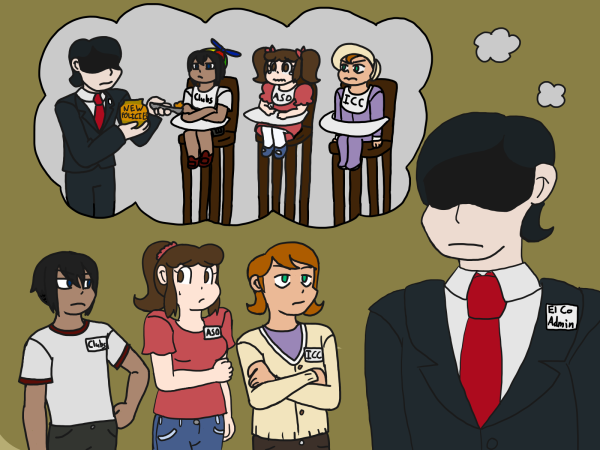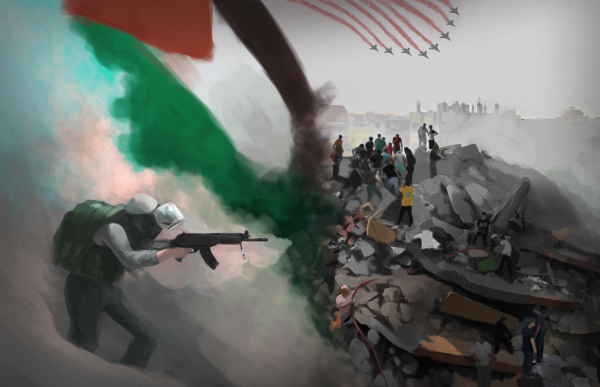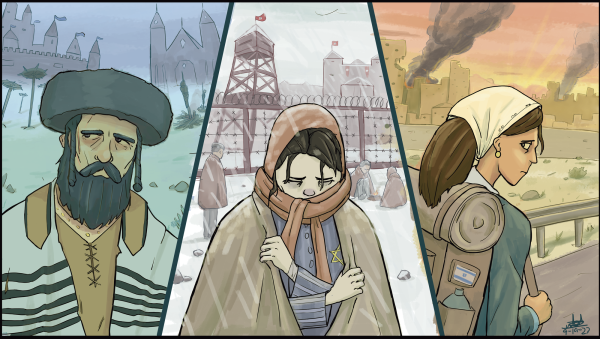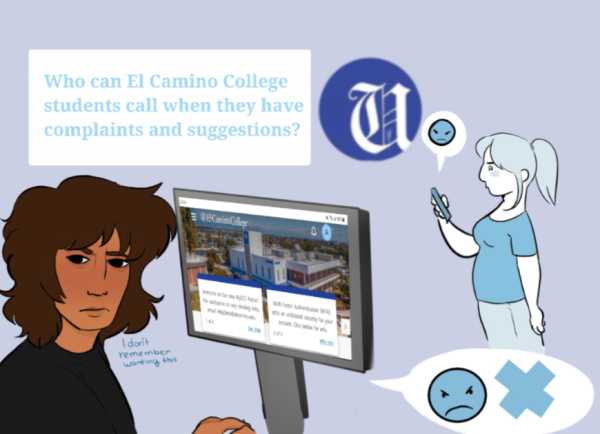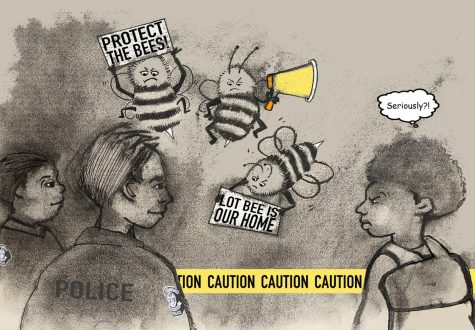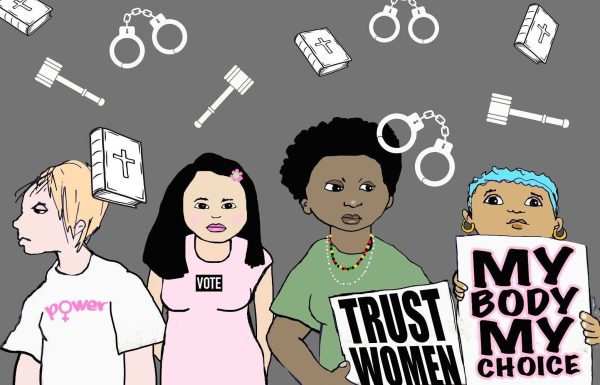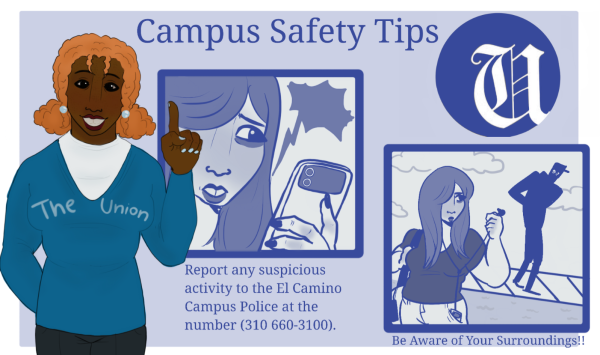Is profanity free speech? YES
It’s called “colorful language” for a reason.
There may be a lot to worry about concerning profanity’s big, bad side. The ugliness is definitely there, and at times it can be extremely apparent.
However, banning on-campus profanity is not the answer to whatever problems profanity may cause.
One can argue that profanity makes for an unpleasant environment.
Then again, so does smog. And vandalism. And rear cleavage hanging out of baggy jeans.
It is going to be a difficult rule to enforce. Certainly, there isn’t a lot that can be done about hampering the use of harsh language. Words can be whispered, written or sign languaged.
For every person who is punished because he or she swore out of place, there will be many others who were never caught.
Unlike cadavers or graffiti, words are uttered and gone in seconds. Dead people are harder to dispose of.
Those who do not want to hear such words circulating in the air can take action-for themselves. Speak up. that is what free speech is for. “Potty mouths” who are also courteous enough will listen.
It may also be that profane words are just “filler” for when one can’t think of any other way to describe something.
In many cases, this assumption is correct.
Then again, so are overused, ambiguous words such as “good” and “bad,” and other words that have no meaning, such as “uhm” and “like.”
Cliches, too, are phrases used without knowing the actual definition of what is being said. They come a dime a dozen.
There are also those all-too-familiar adverbs used for the sole purpose of lengthening one’s paper (or opinions article): “absolutely,” “definitely,” “totally” and “very” are all good examples.
Take a look at any recently-written English paper. Usually, many of those 750 words could have been deleted.
If profanity is going to be seen as an on-campus no-no because it is “useless,” then the above examples should receive the same treatment.
Imagine one’s English teacher passing out the classes’ essay prompt.
Bolded words on the prompt read, “Refrain from using clich?s and tired, meaningless words such as ‘great,’ ‘horrible, ‘terrible,’ and ‘well’ to describe your findings.”
Pretty silly.
Profanity is an expression of oneself. Such exotic words, when used correctly, can be just as useful an emotional outlet as painting a picture.
Of course, the lack of profanity also makes a statement about oneself.
However, the main point remains: taking the action to bar the use of any form of language–profanity, racial slurs, adjectives, whatever-is to hinder personal expression.
What matters is the context of the profanity and how it is used.
Using harsh language to congratulate someone for doing a wonderful job on a midterm is entirely different from using it to express contempt.
There are intelligent, dramatic ways to use profanity to make a necessary impact. This is especially evident in dramatic literature and creative writing.
Famed poet Allen Ginsberg frequently used profanity in his poetry. Toni Morrison-a renowned author taught both in high school and college-level classes-also uses harsh language to make an impact in her work.
The difference here, between what one overhears on the way to class and what is read in novels, is the appropriate use of such speech.
The problem starts when profanity replaces every noun, adjective and adverb of a sentence, leaving only prepositions and verbs intact.
Even then, unfortunately, sometimes those parts of speech get mixed up in the shuffle as well.
Use profanity with common sense. Use it tastefully. Use it appropriately.
Perhaps then, people may realize the potential creative and expressive power profanity can contribute to the English language.


